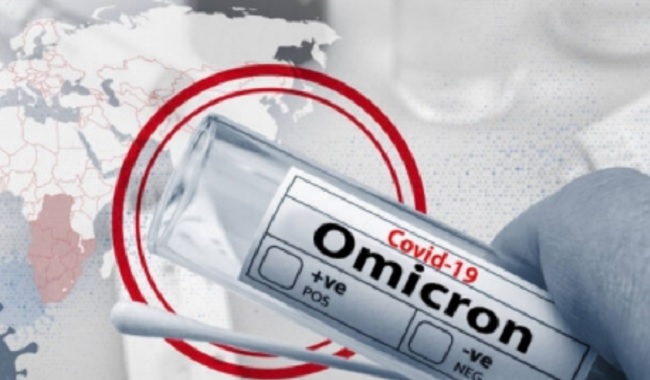
The sudden spike in the number of Covid cases in India is driven by an increased spread of Omicron variant in the country, which may have already started the third wave, experts said on Monday.
Most states and large cities in India have observed a sharp increase in Covid cases, which was not noticed even during festival seasons.
On December 31, India recorded 16,764 new Covid cases, up 27 per cent from the previous day. The average number of cases increased in the last week of December after dropping steadily since mid-May.
On December 29, 13,187 cases were reported, representing a 76.6 per cent rise over the previous week's infections.
"As per the emerging scientific evidence, experts believe that the Omicron variant, first detected in Botswana, is the main reason for the recent rise in infections in India," Dr Dipu T.S., Associate Professor, Division of Infectious Diseases, Amrita Hospital, Kochi, told IANS.
"According to statistics from Global Initiative on sharing all Influenza Data (GISAID) - an open-access resource for viral genomic data - Omicron has surpassed all other variants as the most common in India. The Omicron variant was discovered in almost 60 per cent of the samples sequenced in India during the last few days of December," he added.
India on Monday logged 33,750 new Covid-19 cases in a span of 24 hours, with an additional 123 fatalities, according to the Union Ministry of Health and Family Welfare. The rise in cases took the active caseload to 1,45,582, and pushed the nationwide death toll to 4,81,893.
Meanwhile, the nationwide Omicron infection tally reported from 23 states increased to 1,700, the Ministry said.
Experts stated that a third wave of Covid-19 pandemic may have already started in India and is yet to be declared officially.
"In my opinion, the third wave has started in India. It's pretty evident with the doubling rate of Covid-19 cases in less than 72 hours. Also, clinicians believe the number of patients tested and reported may be just the tip of the iceberg," Dr Prashant Borade, senior consultant, Head of Critical Care at Global Hospital in Parel, Mumbai, told IANS.
He added that there are several asymptomatic cases in the community and subjects with very mild symptoms who don't get tested and take medicines prescribed by the family physician or OTC.
According to Dr. Dipu, most of the states in India have a high basic reproduction number (R0), which epidemiologists refer to as an indicator to understand the extent of transmission occurs within the community. It measures the likelihood of transmission of infection per contact between a susceptible person and an infectious individual, and the contact rate.
"If we look at the numbers in our country, Delhi which used to report 100 to 150 cases per day for many months, last week reported more than 1,000 cases. This translates the R0 to 8. With this trajectory we may be seeing a drastic rise in the number of cases in the coming weeks. As we know with more than 3/4th of the sequenced cases being identified as Omicron indicates that the current spike of cases and potential third wave is due to Omicron," he said.
Epidemiologists and health specialists believe that if the spike continues for another two weeks, it indicates the onset of the third wave.
"Although the government has not officially notified, there are some early signs that the country has already entered the phase of third wave," Dipu said.
The virus has shown the potential for mutating itself and spreading more. Early accounts from other countries have shown the Omicron wave is more contagious than the Delta wave, infecting more people in a shorter period of time. The recent relaxations in travel, opening of schools and other workplaces, complacency among public -- overcrowding and avoidance of vaccination, are other key reasons for the steep rise in cases in the country.
However, the data on Omicron from various show that it causes only mild illness, and patients are not sick and so hospitalisation is still very low.
"This is good in a way that we would eventually develop herd immunity but still ones who are sick like those with diseases like diabetes, malignancy etc are still at risk," Dr Shivanshu Raj Goyal, Consultant, Respiratory/Pulmonology and Sleep Medicine, Artemis Hospital, told IANS.
Goyal advised people to continue following norms of social distancing, and masking, while ruing that still a lot of people have not gone for vaccination.
(Rachel V. Thomas can be contacted at [email protected])














